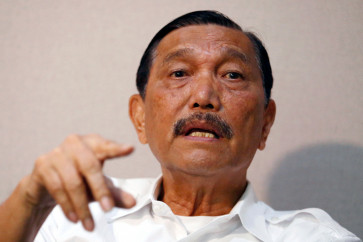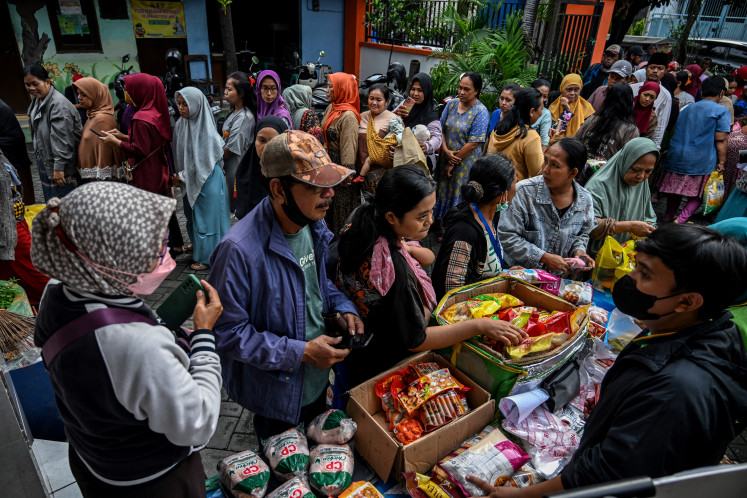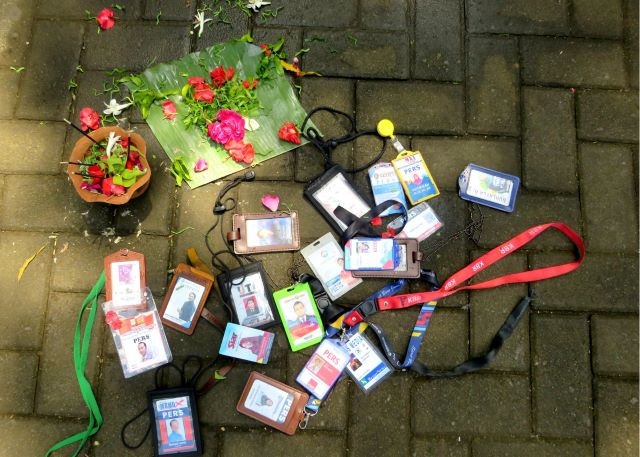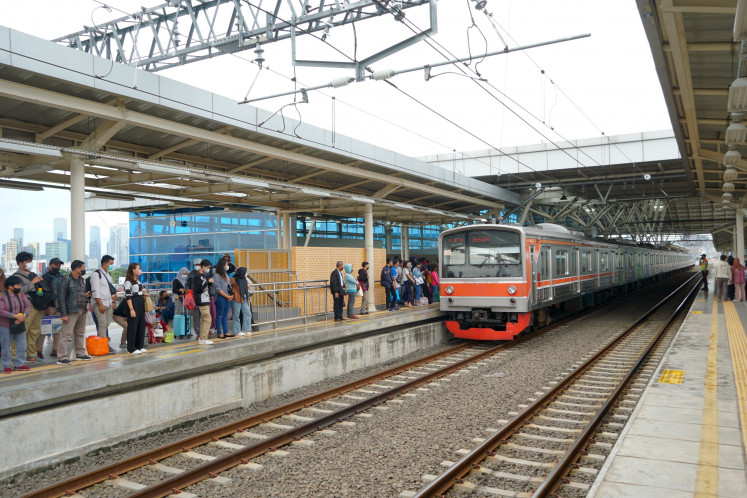Branchless banking program gives access to rural residents
The financial authorities’ efforts to expand financial services — popularly known as financial inclusion — to the unbanked population are bearing fruit as more and more residents living in rural areas now have access to banking services
Change Size

The financial authorities’ efforts to expand financial services — popularly known as financial inclusion — to the unbanked population are bearing fruit as more and more residents living in rural areas now have access to banking services.
Three years ago, the Financial Services Authority (OJK) initiated Laku Pandai, a branchless banking program aimed at increasing accessibility to banking services for residents living in rural areas.
Since then, more people have access to services like withdrawing and transferring money as well as paying electricity bills without having to go to banks that are sometimes located far from their homes.
Instead, they just need to pay a visit to branchless banking agents provided by national lenders.
For example, residents living in Winong village, Tugu district, Trenggalek, East Java, have made use of BRILink agents.
BRILink is state-owned lender Bank Rakyat Indonesia’s (BRI) branchless banking program.
One villager who frequently visits the area’s agent for her financial needs is resident 40-year-old Sarini.
She uses the agent to withdraw money transferred to her BRI bank account by her husband who works in Kalimantan.
For Sarini, the agent is a lifesaver when she urgently needs money because the nearest BRI branch is about 5 kilometers from her home. The largest BRI office in Trenggalek is about 16 km from her village.
“When I need money immediately, like before Idul Fitri for example, I can withdraw money through BRILink because it is closer to my home.
“I do not need to go to the bank downtown,” she told The Jakarta Post recently, adding that the agent was located just 50 meters from her home.
One of the village’s agents, Anik “Santi” Susanti, 31, said the number of people making transactions at her outlet had increased.
With only one Electronic Data Capture (EDC) machine, Santi, who also owns a small shop in the village, helps many residents with their banking needs.
“Some of them withdraw money sent by their relatives every month, some deposit their money, while some transfer money for different needs like online shopping,” Santi told the Post recently.
“Normally, there are 10 to 15 transactions per day.”
She said that ahead of Idul Fitri, transactions through the BRILink service at her outlet had increased significantly, reaching Rp 10 million (US$709) per day.
Santi added that residents living in neighboring villages also came to her for transactions.
There are 14 agents in villages across the Tugu district.
BRI corporate secretary Bambang Tribaroto said it had more than 220,000 agents across Indonesia. Last year, the transaction value made through the agents reached Rp 298 trillion.
From January to April this year, it reached more than Rp 146.2 trillion.
“Every year, the number of transactions made through BRILink agents grow significantly,” said Bambang recently, adding that 202.1 million transactions were made through the agents last year, a 105.4 percent increase year-on-year.
Bambang said the bank would continue to improve its BRILink services to increase financial inclusion in Indonesia, especially since the national target stated that at least 75 percent of Indonesians should have access to financial services by 2019.
“Our target is to have 380,000 BRILink agents by the end of this year. The increase in the number of agents will increase the amount and volume of banking transactions significantly,” he said.
Aside from BRI, other lenders have also participated in the Laku Pandai program, namely private lender Bank Tabungan Pensiunan Nasional (BTPN) through its branchless and digital banking service BTPN Wow, state-owned lender Bank Negara Indonesia (BNI) through Agen46 and state-owned lender Bank Mandiri through AgenMU.
Bank Indonesia (BI) also introduced a digital financial services (LKD) program in an effort to expand financial services. The OJK and BI are set to integrate their programs this year.









